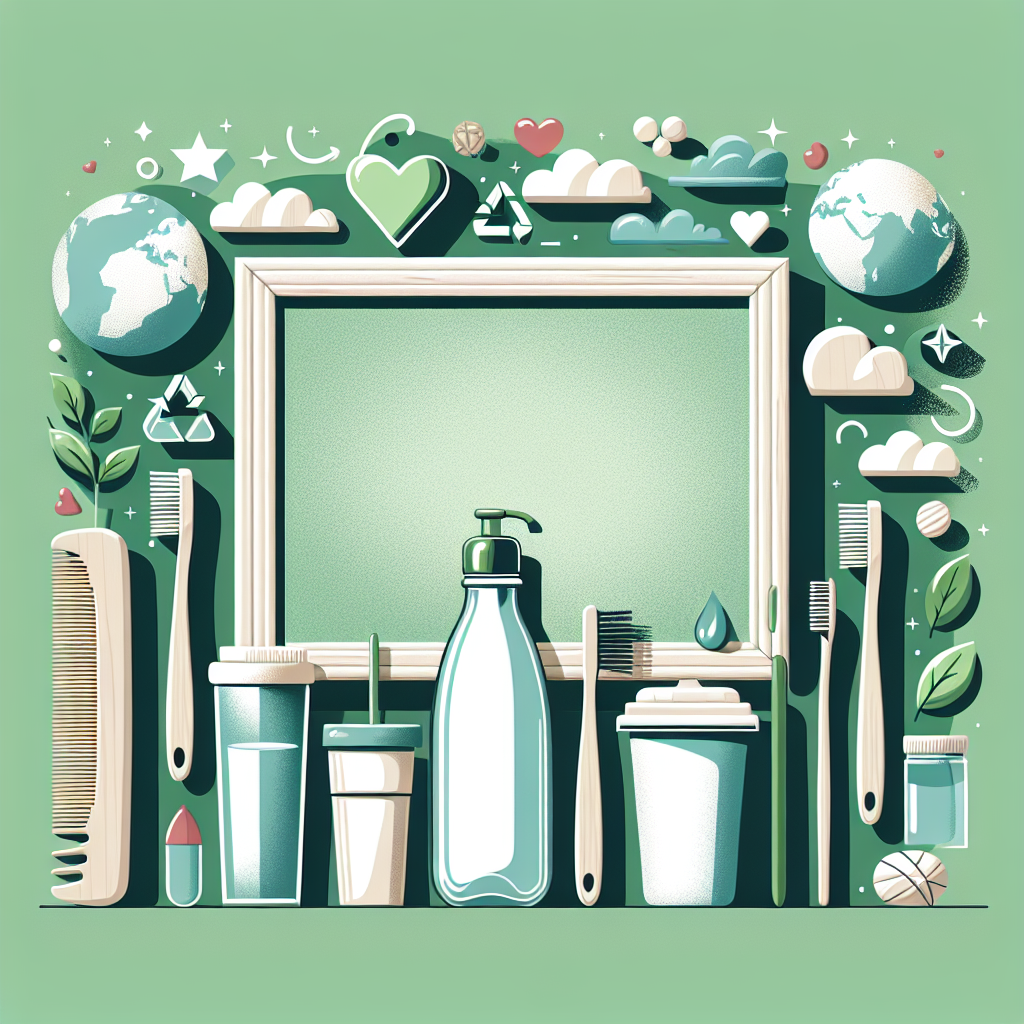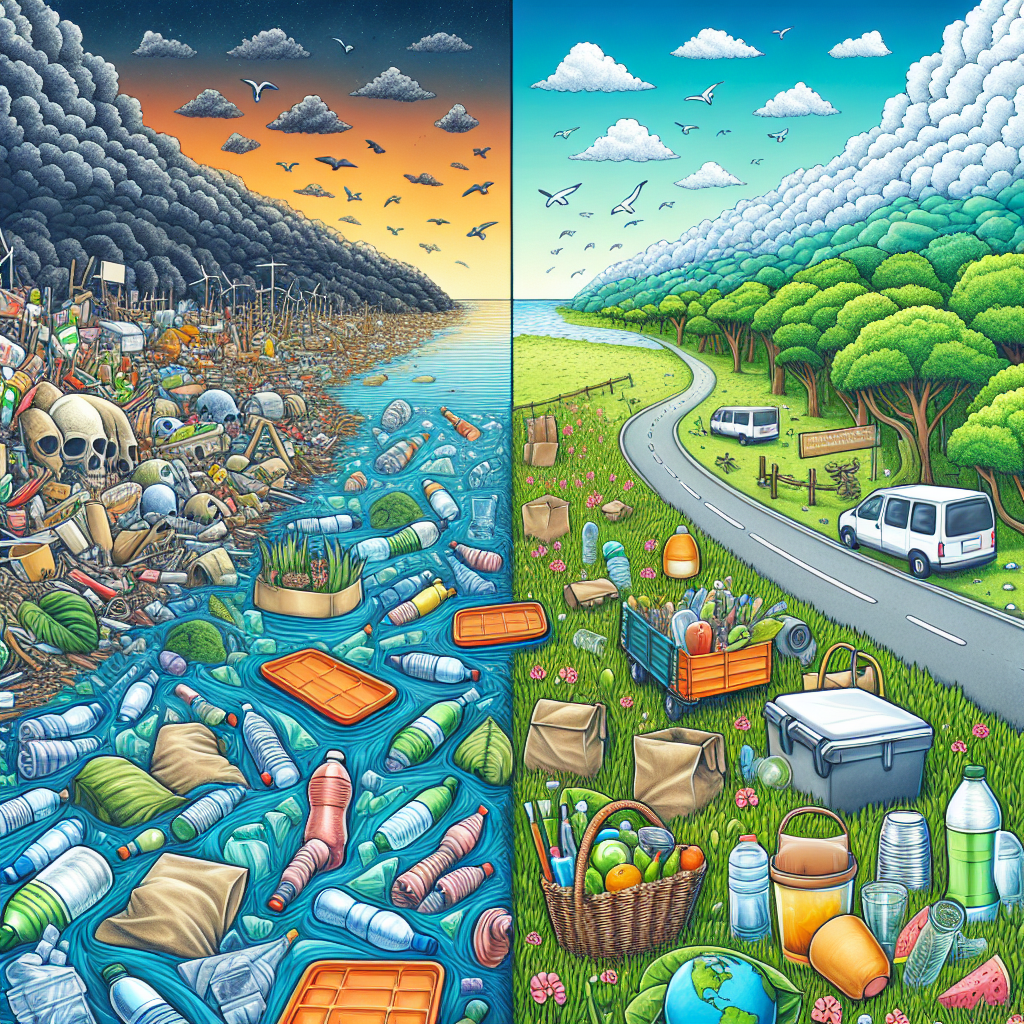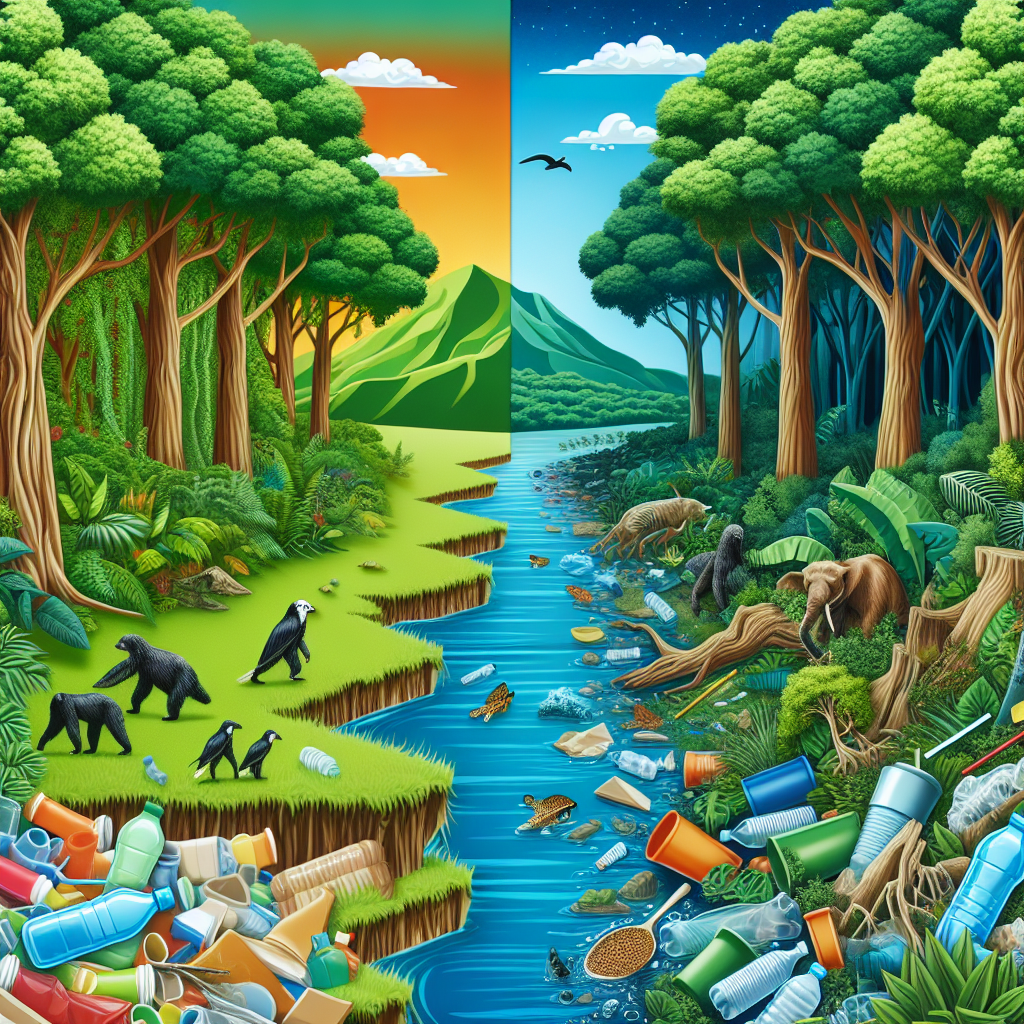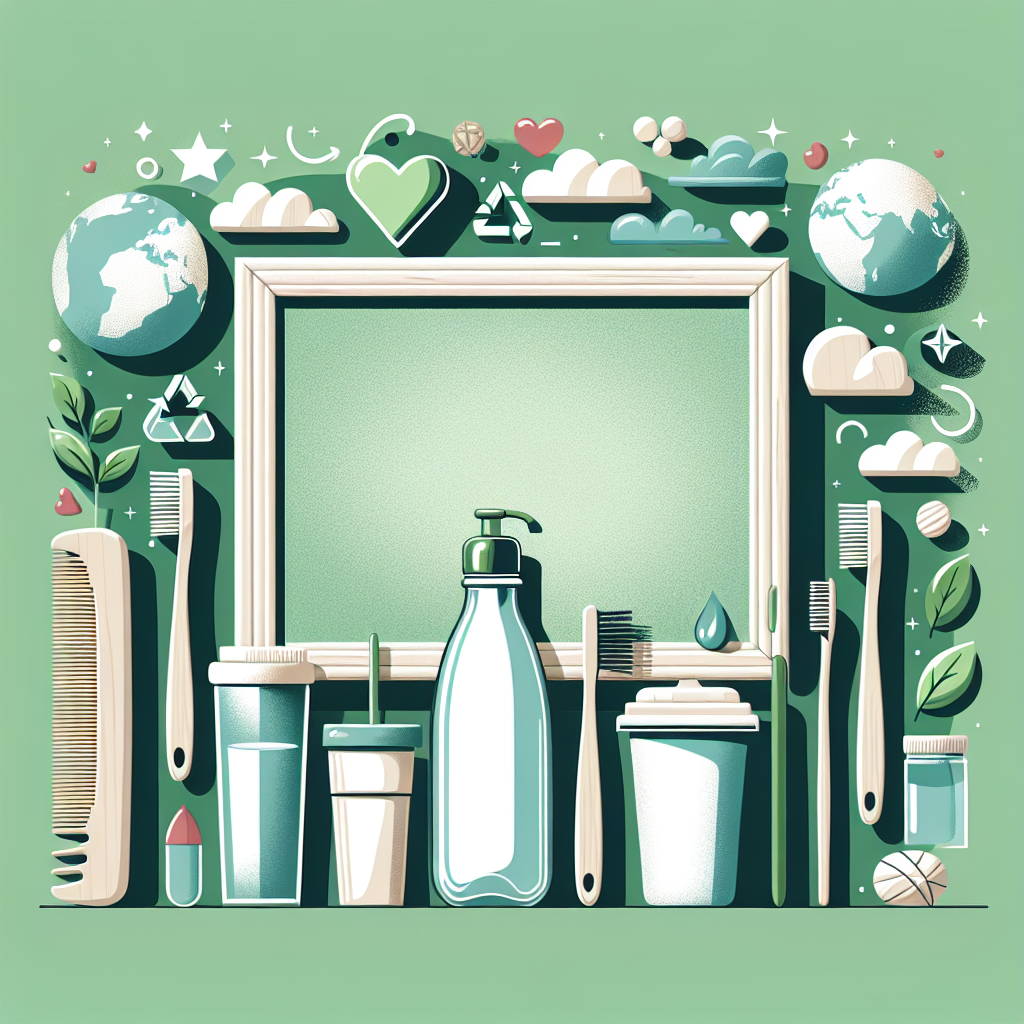In a world increasingly aware of the detrimental impact of single-use plastics on the environment, the need for sustainable alternatives has never been more pressing. From plastic straws to disposable shopping bags, the convenience observed in using these items comes at a heavy cost. But fear not, as there are a myriad of eco-friendly alternatives ready to take their place. In this article, we will explore some of these sustainable alternatives that can help reduce our dependence on single-use plastics and contribute to a healthier planet.

1. Reusable Containers
Reusable containers are a fantastic alternative to single-use plastics, as they can be used over and over again, reducing waste and helping the environment. There are several types of reusable containers to choose from, each with its own benefits.
1.1 Stainless Steel
Stainless steel containers are a popular choice for their durability and long lifespan. They are resistant to rust, stains, and odors, making them ideal for storing a variety of foods and liquids. Stainless steel containers also have the added benefit of being lightweight and easy to carry, making them great for on-the-go use. Plus, they are dishwasher safe, making cleanup a breeze.
1.2 Glass
Glass containers are another excellent option for those looking for sustainable alternatives to single-use plastics. They are non-toxic, BPA-free, and do not leach chemicals into food or drinks, making them a safe choice for storage. Glass containers are also versatile, as they can be used in the refrigerator, freezer, oven, and microwave. Additionally, they are transparent, allowing you to easily see the contents inside.
1.3 Silicone
Silicone containers are a flexible and lightweight alternative to plastic containers. They are heat resistant, making them suitable for microwave and oven use. Silicone is non-toxic and does not contain any harmful chemicals, making it a safe choice for food storage. It is also an excellent option for those looking for space-saving solutions, as silicone containers can be compressed and folded when empty, reducing storage space.
1.4 Bamboo
Bamboo containers are a sustainable and eco-friendly option for those conscious of their environmental impact. Bamboo is a renewable resource that grows quickly and does not require the use of pesticides or fertilizers. Bamboo containers are lightweight, durable, and have natural antimicrobial properties, making them an excellent choice for food storage. Additionally, bamboo containers have a unique and stylish look, adding a touch of elegance to your kitchen.
2. Biodegradable Plastics
Biodegradable plastics are designed to break down naturally over time, reducing their environmental impact. Here are some types of biodegradable plastics commonly used as alternatives to single-use plastics:
2.1 PLA (Polylactic Acid)
PLA is a biodegradable plastic made from renewable sources such as cornstarch or sugarcane. It has similar properties to traditional plastic but breaks down much faster when exposed to composting conditions. PLA is commonly used in packaging, disposable cutlery, and food containers.
2.2 PHA (Polyhydroxyalkanoates)
PHA is a group of biodegradable plastics produced by bacteria. It is a versatile material that can be molded into various forms, making it suitable for a wide range of applications. PHA is compostable and breaks down into water, carbon dioxide, and organic matter. It is used in items such as packaging, bags, and utensils.
2.3 Starch-based Plastics
Starch-based plastics are made from renewable resources such as corn or potatoes. These plastics have a similar structure to traditional plastics but are designed to biodegrade more easily. Starch-based plastics can be used in a variety of applications, including packaging and disposable cutlery.

3. Paper and Cardboard Packaging
Paper and cardboard packaging are sustainable alternatives to single-use plastics, as they are recyclable, compostable, and made from renewable resources. Here are some common examples:
3.1 Paper Bags
Paper bags are a popular option for grocery shopping and retail packaging. They are sturdy, reusable, and can be recycled or composted after use. Paper bags can also be customized with logos and designs, making them an excellent choice for businesses looking to promote their brand in an eco-friendly way.
3.2 Cardboard Boxes
Cardboard boxes are widely used for shipping and product packaging. They are made from recycled paper pulp and can be easily recycled or composted. Cardboard boxes are lightweight, yet strong, providing excellent protection for goods during transportation. They can also be reused for storage or repurposed for arts and crafts projects.
3.3 Molded Pulp Packaging
Molded pulp packaging is made from recycled paper or cardboard fibers that are pressed into various shapes to create protective packaging solutions. It is commonly used for products such as eggs, electronics, and fragile items. Molded pulp packaging is biodegradable, compostable, lightweight, and provides excellent cushioning for delicate items.
4. Metal Utensils and Straws
Metal utensils and straws are sustainable alternatives to single-use plastic cutlery and straws. They can be reused countless times, reducing the amount of waste generated.
4.1 Stainless Steel Cutlery
Stainless steel cutlery is durable, long-lasting, and resistant to rust and staining. It can be easily cleaned and reused, making it an excellent choice for everyday use at home, picnics, or takeout meals. Stainless steel cutlery is also a stylish option, adding a touch of elegance to your dining experience.
4.2 Stainless Steel Straws
Stainless steel straws are a popular option for those looking to reduce the use of single-use plastic straws. They are easy to clean, dishwasher safe, and can be used over and over again. Stainless steel straws are available in different sizes and styles, including straight and bent, to suit your drinking preferences.

5. Plant-based or Compostable Plastics
Plant-based or compostable plastics are made from renewable resources and designed to break down under certain conditions, such as composting. They offer a sustainable alternative to traditional single-use plastics.
5.1 PHA Blends
PHA blends are a type of plant-based plastic made from a mixture of PHA and other bio-based materials. They maintain the properties of traditional plastics while being biodegradable and compostable. PHA blends can be used in a variety of applications, including food packaging, disposable cutlery, and bags.
5.2 PBAT (Polybutylene adipate terephthalate)
PBAT is a compostable plastic made from petroleum-based and plant-based materials. It is designed to break down into water, carbon dioxide, and biomass under industrial composting conditions. PBAT is commonly used in food packaging, trash bags, and agricultural films.
5.3 PBS (Polybutylene succinate)
PBS is a biodegradable plastic made from renewable resources such as corn or sugarcane. It can break down into water, carbon dioxide, and biomass under certain conditions. PBS is used in various applications, including packaging, disposable cutlery, and agricultural films.
5.4 PEF (Polyethylene furanoate)
PEF is a type of plastic made from plant-based materials, such as sugarcane or corn, as a sustainable alternative to traditional PET plastics. PEF is biodegradable under certain conditions and offers similar properties to traditional plastics, making it suitable for beverage bottles and other packaging applications.
6. Natural Fiber Bags and Packaging
Natural fiber bags and packaging are environmentally friendly alternatives to single-use plastics. They are made from renewable resources and biodegradable materials, reducing the impact on the environment.
6.1 Cotton Bags
Cotton bags, often referred to as tote bags, are a popular choice for shopping and carrying everyday items. They are durable, washable, and can be reused numerous times. Cotton bags can also be customized with designs or logos, making them a sustainable promotional item for businesses.
6.2 Jute Bags
Jute bags, also known as burlap bags, are made from the fibers of the jute plant. They are biodegradable, sustainable, and offer excellent strength for carrying heavy items. Jute bags are commonly used for packaging agricultural products, as well as shopping and gift bags.
6.3 Hemp Bags
Hemp bags are made from the fibers of the hemp plant, known for their strength and durability. They are biodegradable, breathable, and resistant to mold and mildew. Hemp bags are versatile and can be used for a variety of purposes, including shopping, beach trips, and storing belongings.
6.4 Banana Fiber Packaging
Banana fiber packaging is an innovative and sustainable alternative to single-use plastics. It is made from the stalks of the banana plant, which are processed to extract the fibers. Banana fiber packaging is biodegradable, compostable, and offers good strength and moisture resistance. It can be used for various applications, such as food packaging and disposable tableware.
7. Beeswax Wraps
Beeswax wraps are a natural and reusable alternative to plastic cling wrap and aluminum foil. They are made by infusing cotton fabric with a mixture of beeswax, jojoba oil, and tree resin. Beeswax wraps are moldable and can be used to wrap food items, covering bowls, or as sandwich wraps. They are washable and can be used for up to a year before needing to be replaced.
8. Edible Alternatives
Edible alternatives are a unique and sustainable option for reducing waste. These items can be consumed after use, eliminating the need for disposal.
8.1 Edible Cutlery
Edible cutlery is made from ingredients such as wheat, rice, or millet flour and can be eaten after use. These spoons, forks, and chopsticks are an excellent solution for reducing plastic waste from disposable utensils. Edible cutlery is gluten-free, vegan, and biodegradable, making them a guilt-free choice.
8.2 Edible Packaging
Edible packaging is made from materials such as seaweed or starch and can be consumed along with the food it contains. It is a creative solution to reducing waste and eliminating plastic packaging. Edible packaging is available in various forms, including wrappers, pouches, and containers. It offers a sustainable way to enjoy food on the go.
9. Refill Stations
Refill stations are an innovative concept that allows consumers to bring their own containers to refill with products such as cleaning supplies, personal care products, and food items. By eliminating the need for single-use packaging, refill stations reduce waste and promote sustainable consumer habits. They are becoming more popular in grocery stores, zero-waste shops, and eco-conscious establishments.
10. Liquid Dispensers and Soap Bars
Liquid dispensers and soap bars are alternatives to single-use plastic bottles for personal care products such as hand soap, shampoo, and conditioner.
Liquid dispensers are designed to be refilled with bulk products, reducing the need for individual plastic bottles. They are commonly found in public bathrooms, hotels, and homes. Using refillable liquid dispensers helps reduce plastic waste and encourages the use of eco-friendly products.
Soap bars are a traditional and sustainable option for personal hygiene. They are typically packaged in minimal or compostable packaging, reducing the impact on the environment. Soap bars can also be made from natural ingredients and free from harsh chemicals, making them a healthier choice for your skin and the planet.
By exploring and embracing these sustainable alternatives to single-use plastics, you can make a positive impact on the environment and help create a more sustainable future. Remember to choose products that align with your values and lifestyle, and together we can reduce plastic waste and protect our planet for generations to come.

